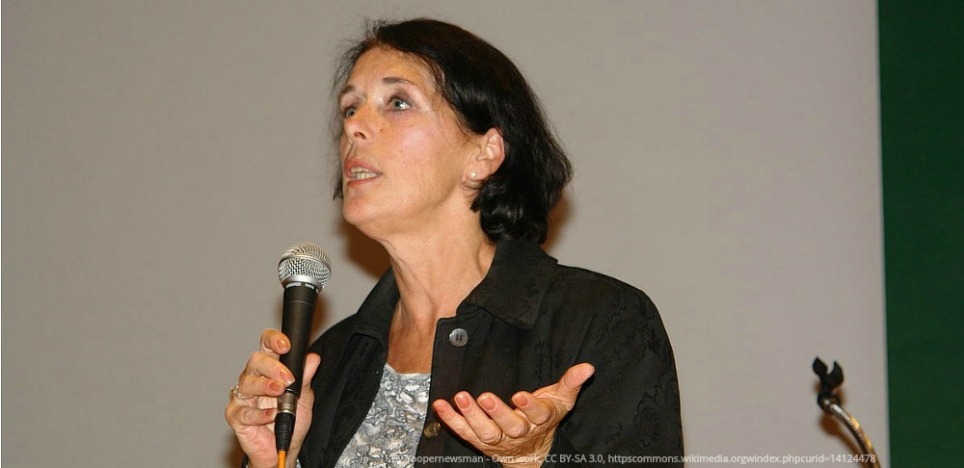Lois Gibbs, private citizen, was born on June 25, 1951, in Buffalo, New York; Lois Gibbs, environmental activist, was born in 1978 in the Love Canal neighborhood of Niagara Falls, New York. Gibbs’ transformation from a (self-described) “housewife” to leader of a grassroots movement epitomizes what can happen when the personal becomes political.
Love Canal seemed to Gibbs to be an idyllic neighborhood until she discovered in 1978 that her son’s school was built on top of a toxic waste dump. After meeting resistance from the school administration (which refused to transfer her sick son to an uncontaminated school) and from government officials (who refused to properly respond to the health emergency), Gibbs took matters into her own hands and organized the Love Canal Homeowners’ Association (LCHA).
In partnership with scientists, the LCHA found devastating evidence of birth defects and illnesses caused by toxic chemicals seeping into residences, including the carcinogen dioxin, now known to be one of the most deadly chemicals in the world. What finally convinced officials to act, however, was not the science but the voice of the people: the public pressure exerted by Gibbs and the LCHA. Finally, President Jimmy Carter ordered the entire community evacuated, and the government paid residents fair market value for their houses.
Not long after she began organizing her own neighborhood, Gibbs started receiving calls from parents concerned about hazardous waste sites near their homes and schools. Her lifelong career as a grassroots organizer had begun! When she left Love Canal, Gibbs settled in Washington, D.C., where she founded what is now called the Center for Health, Environment, and Justice (CHEJ). She continues to serve as the organization’s Executive Director and has so far assisted over 10,000 grassroots groups. Her passion for environmental justice has inspired others such as Erin Brokovich to challenge chemical corporations at the community level.
Her work led to landmark legislation. In response to Love Canal, the EPA established the Comprehensive Environmental Response, Compensation and Liability Act. This act instituted the Superfund, an account that land polluters are required to pay into in order to fund the cleanup of natural resources lost to hazardous waste (also known as Superfund sites).
Gibbs insisted that a government elected by the people protect the people! Her life is a reminder that we all have the power to lay claim to our democratic and human rights.
To Name This Day . . .
 Personal Explorations
Personal Explorations
Inventory the Unconventional and Intangible: Gibbs lacked the “credentials” to build and lead a movement. State health officials and even her mother reminded her that she was “just a housewife” with only a high school education. But she had intelligence, perseverance, and passion, just to name a few of her gifts. Today, take an inventory of the qualities you have that are overlooked in favor of what goes on a traditional resume or profile. What are your intangibles? Your uncommon gifts?
 Spiritual Practice
Spiritual Practice
Defending the Sacred: As historians look back 40 years later, it is clear that the power of the people prevailed over the intransigence of government officials at Love Canal. People connected with one another in defense of what is precious: children, health, the land. Take a moment to express gratitude for a place or ideal in your locale that is protected because of the good work of people like Lois Gibbs. Then take a moment to consider what needs protecting now. How might you help defend the sacred? If possible, visit these places to bear witness to what has been done and can still be done.
